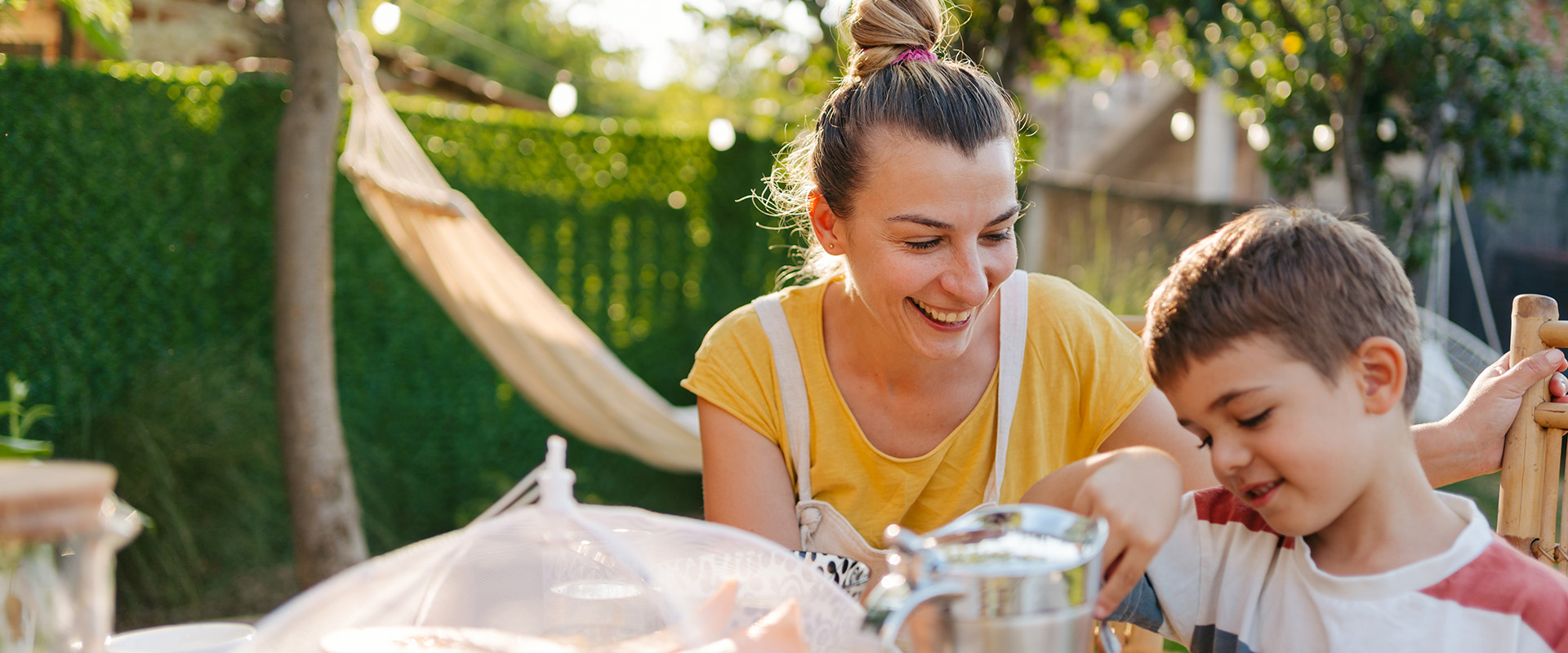Wellbeing Guide: Blog 1 - Self-Regulation

Childhood is a precious time where the foundations for your child’s learning are laid and important discoveries about themselves and the world around them are made.
That’s why at Bright Horizons, we practise The Nurture Approach; a blend of our research-based holistic learning, alongside our support for children’s emotional wellbeing, all lovingly delivered by the expertise of our dedicated practitioners. And, because we know wellbeing is so important for young children, Our Early Childhood Experts have created a series of Wellbeing Guides just for you. Through these guides, you’ll not only gain a deeper understanding of early childhood development, but benefit from expert advice on raising a happy, confident, and emotionally resilient child!
In this first guide, our experts shed light on the importance of self-regulation and how you as a parent can teach your child this valuable skill…
What is Self-Regulation?
Self-Regulation is the capacity to behave in a positive, appropriate way in a variety of situations: to have conscious control of thoughts, feelings, and behaviours.
For children, as much as for adults, this ability enables them to behave in a way that’s socially acceptable and perhaps more importantly, helps them to feel good in themselves! This skill is important for wellbeing, and therefore, your child’s overall development.
Self-regulation involves:
- Managing Emotions: Being able to identify and name their emotions, (e.g. happy, sad, angry) learning strategies to calm themselves down when they are upset, and learning how to express themselves in ways that are appropriate for the situation, like using words rather than lashing out to communicate.
- Managing Behaviour: Gradually learning to pause and think before acting, understanding and following simple rules, routines and directions at home and at nursery, and understanding and accepting delayed gratification (e.g. waiting their turn to go down the slide).
- Managing Cognitive Functions: The ability to stay on task and not get easily distracted, being able to think ahead and plan how to achieve a goal, (e.g. which block to place where to build a tower) and the ability to stick to a task even when it becomes challenging.
Everyday Examples Can Include:
- Waiting for a Turn: When your child waits patiently for their turn to play with a toy instead of grabbing it from another child.
- Handling Frustration: When your child is unable to solve a puzzle, they take a deep breath and try again instead of throwing the pieces.
- Following Instructions: During a group activity, your child listens to their practitioner’s instructions and follows them without getting distracted.
- Sharing: Your child shares their crayons with a friend instead of keeping them all to themselves.
- Expressing Needs: Instead of crying, your child uses words to tell you or their other carers that they are hungry or need help.
How Parents Can Help
Model Your Own Ability to Self-Regulate
As a role model for your child, they learn from watching how you work through frustration and manage stressful situations. Therefore as an adult, it’s important to be aware of your own ability to manage stress to enable you to co-regulate with your child. When you find yourself feeling overwhelmed, angry, tired, hungry or unwell, the key is to learn healthy ways to manage these strong feelings using appropriate methods (e.g. taking a few deep breaths and a moment to think before you act). Not only does this set a positive example for your child, but you’re likely to do a much better job of supporting and caring for them when you feel calm and steady.
Reflect on your ability to regulate your own thinking and :
- How does that ability change over the course of the day?
- What might cause that ability to change?
- What do you do when you start to feel dysregulated?
3 Top Tips for Teaching Self-Regulation and Co-Regulation
"When little people are overwhelmed by big emotions, it's our job to share our calm, not join their chaos". L.R. Knost
It’s important to remember that self-regulation, like many other developmental skills, takes time for children to learn and put into practise. It is not developmentally expected for young children to be able to do this and really, their ability to do so only really begins around the age of four. Up until then, and even beyond, your child will need co-regulation.
- Take deep breaths before responding to your distressed child - this will bring your heart rate down and help you “practise the pause". Invite your child to take a few deep breaths with you, taking them on the journey toward calm.
- Sit at the same level as your child. This helps to make them feel safe. Make yourself smaller by lowering yourself to their eye-level, showing them that you’re in this together and you’ll figure things out together, calmly.
- Label the emotions. While your child is learning to self-regulate, help them to choose appropriate words to express what they might be feeling. Try asking them questions like: “Are you feeling frustrated because you’re hungry?” or “Are you sad because your friend is leaving?”.





